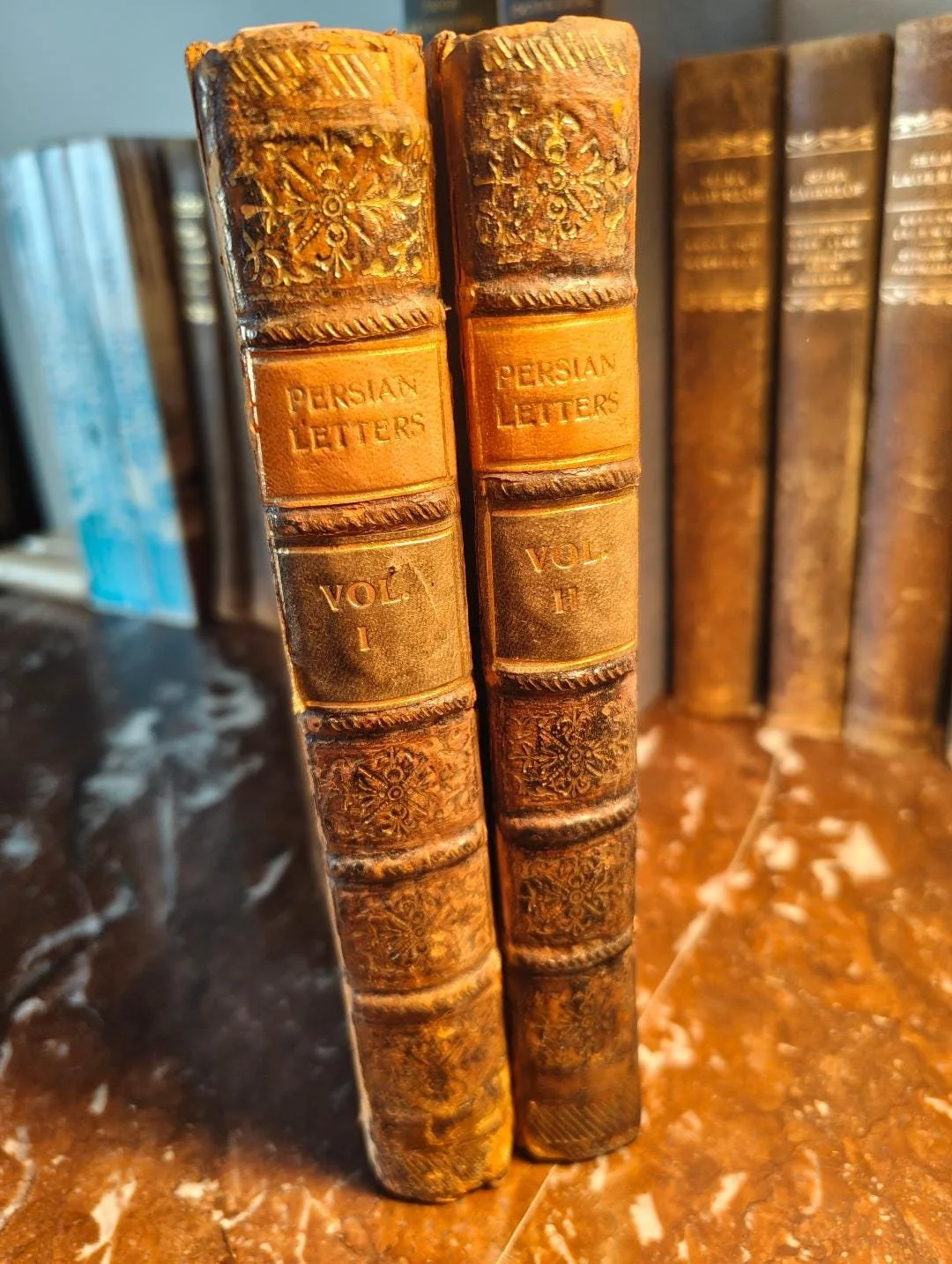 Image 1 of 9
Image 1 of 9

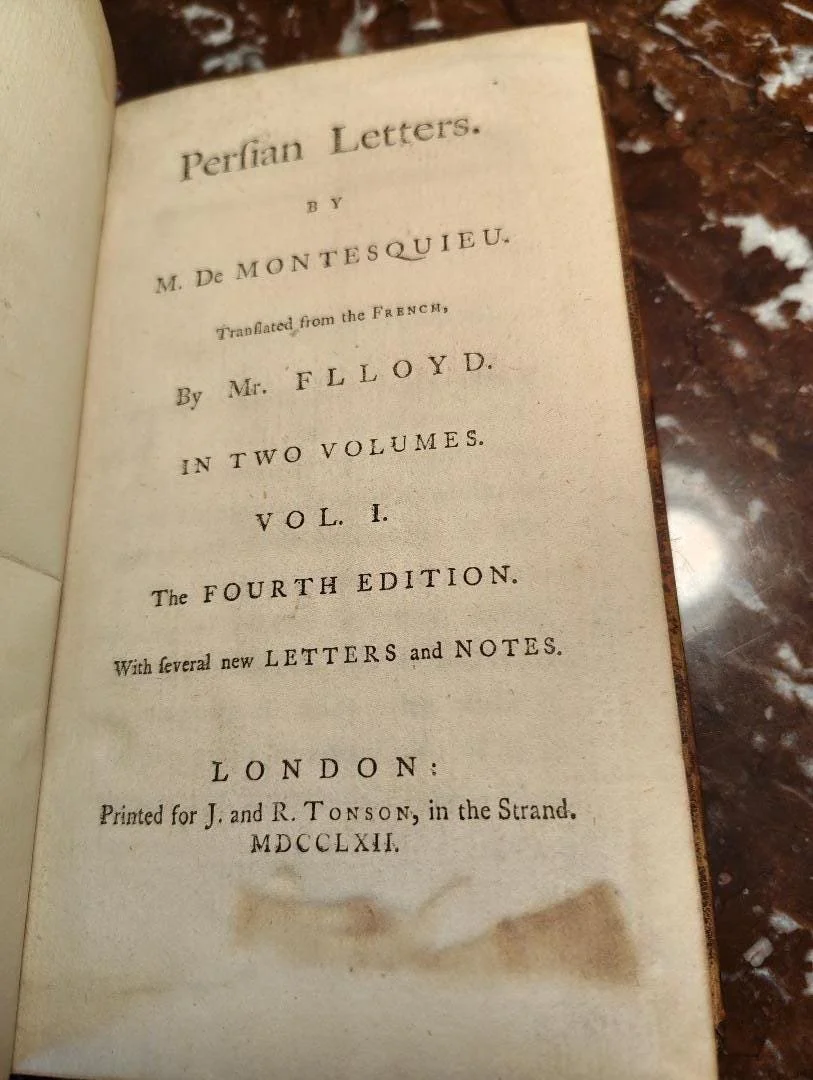 Image 2 of 9
Image 2 of 9

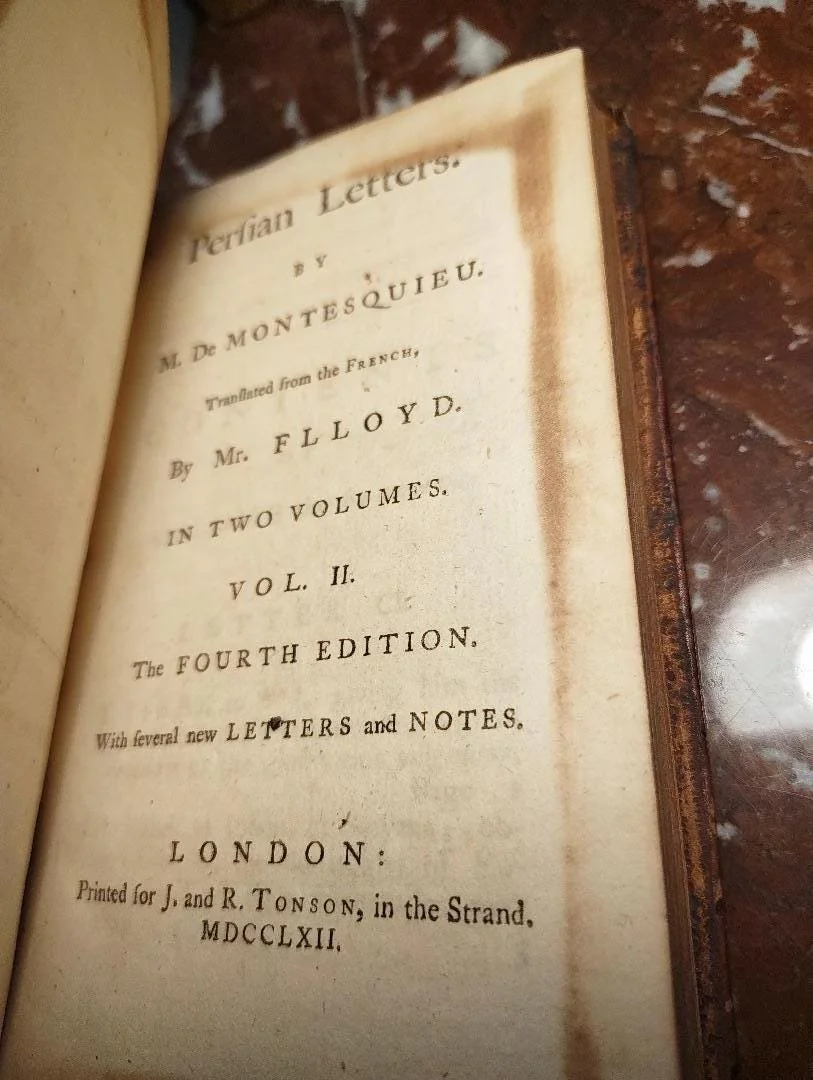 Image 3 of 9
Image 3 of 9

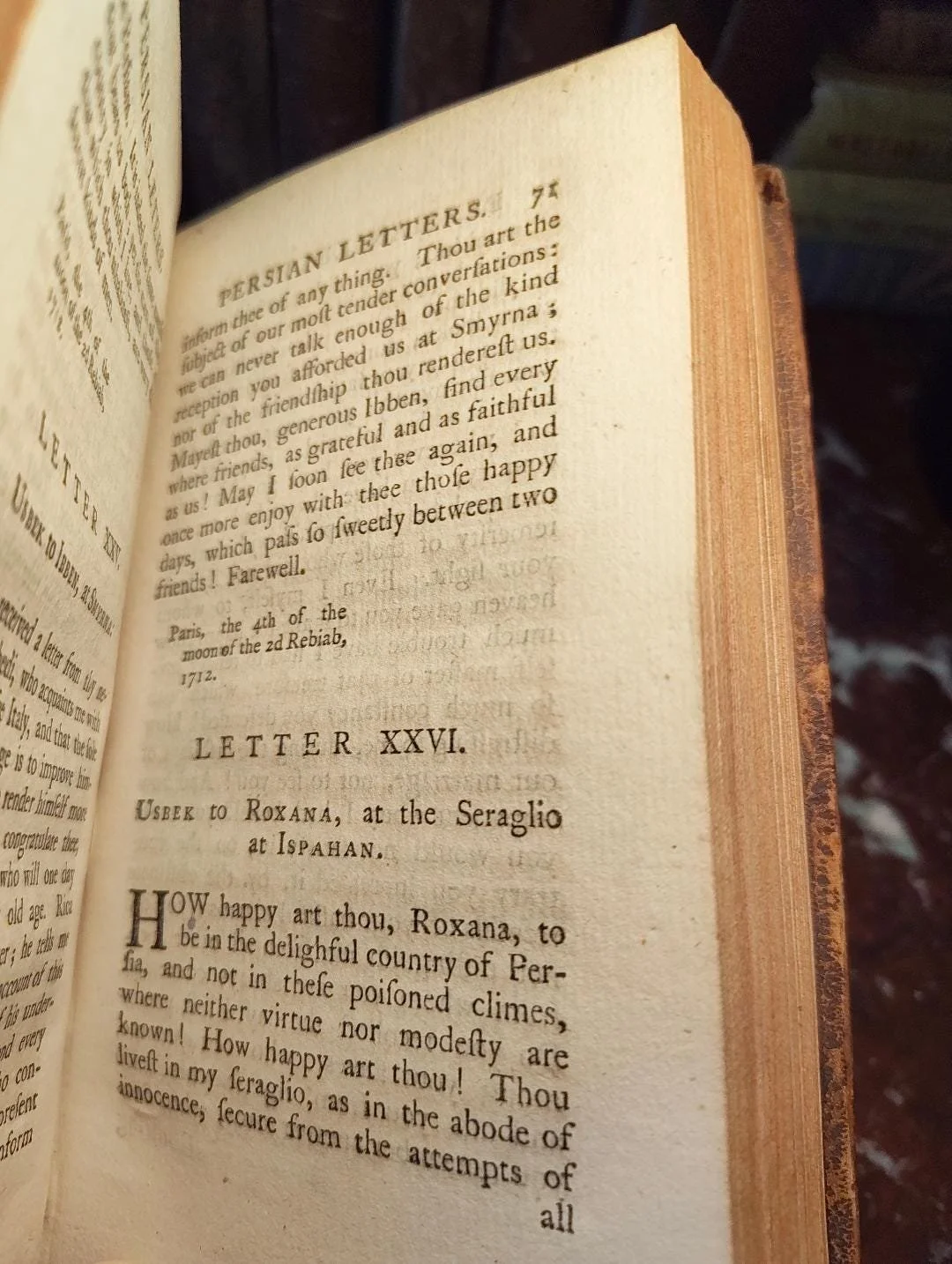 Image 4 of 9
Image 4 of 9

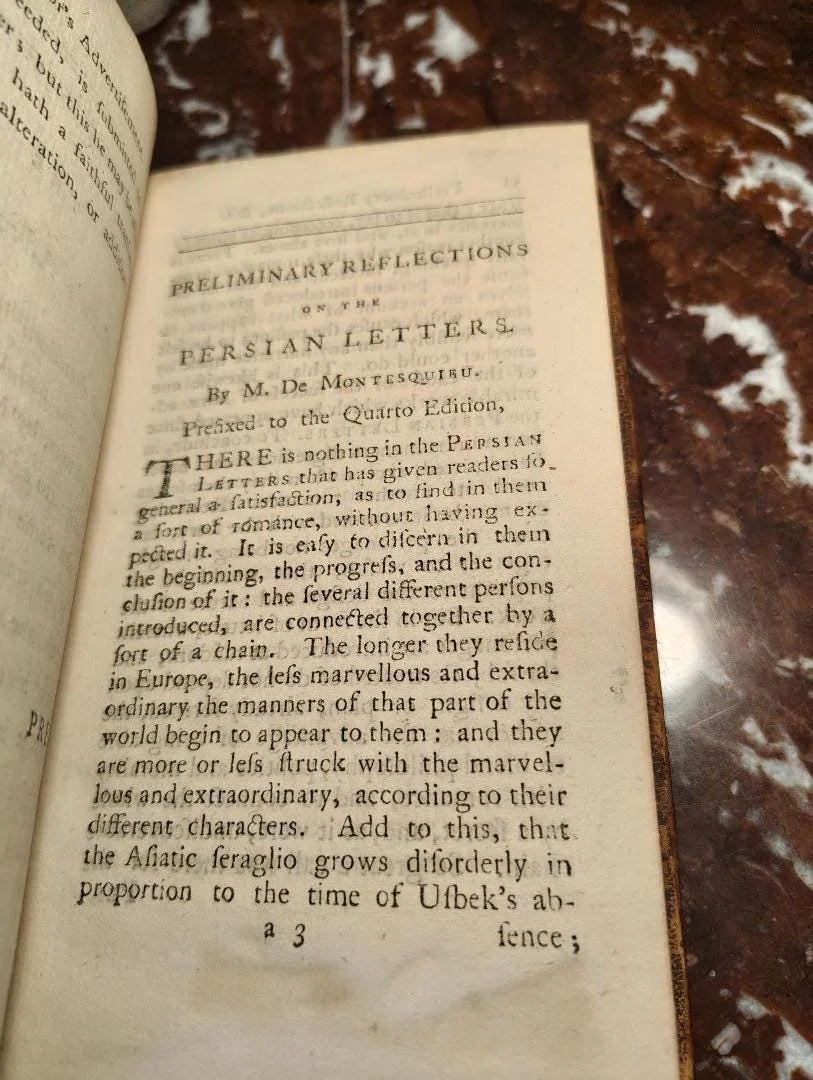 Image 5 of 9
Image 5 of 9

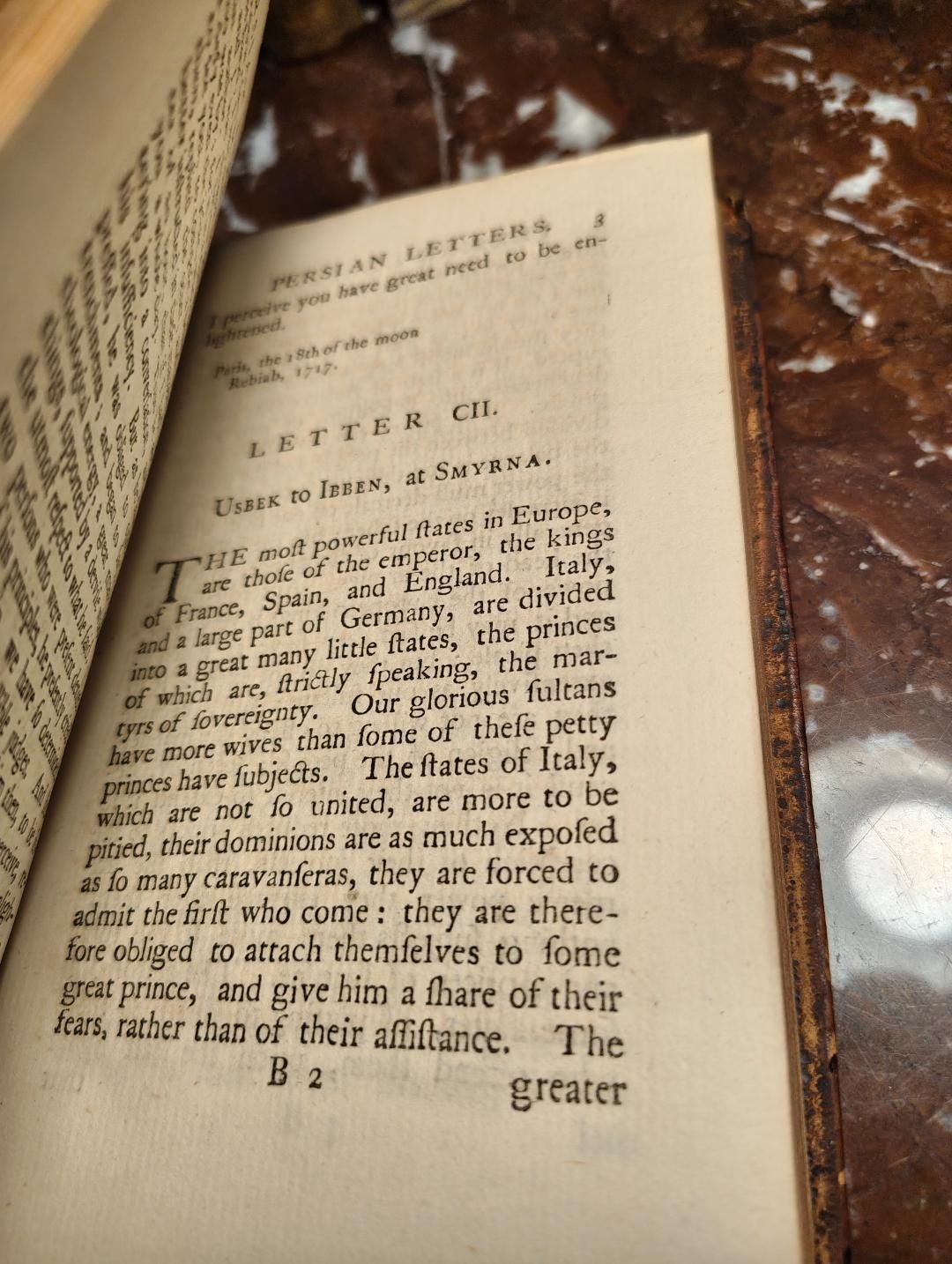 Image 6 of 9
Image 6 of 9

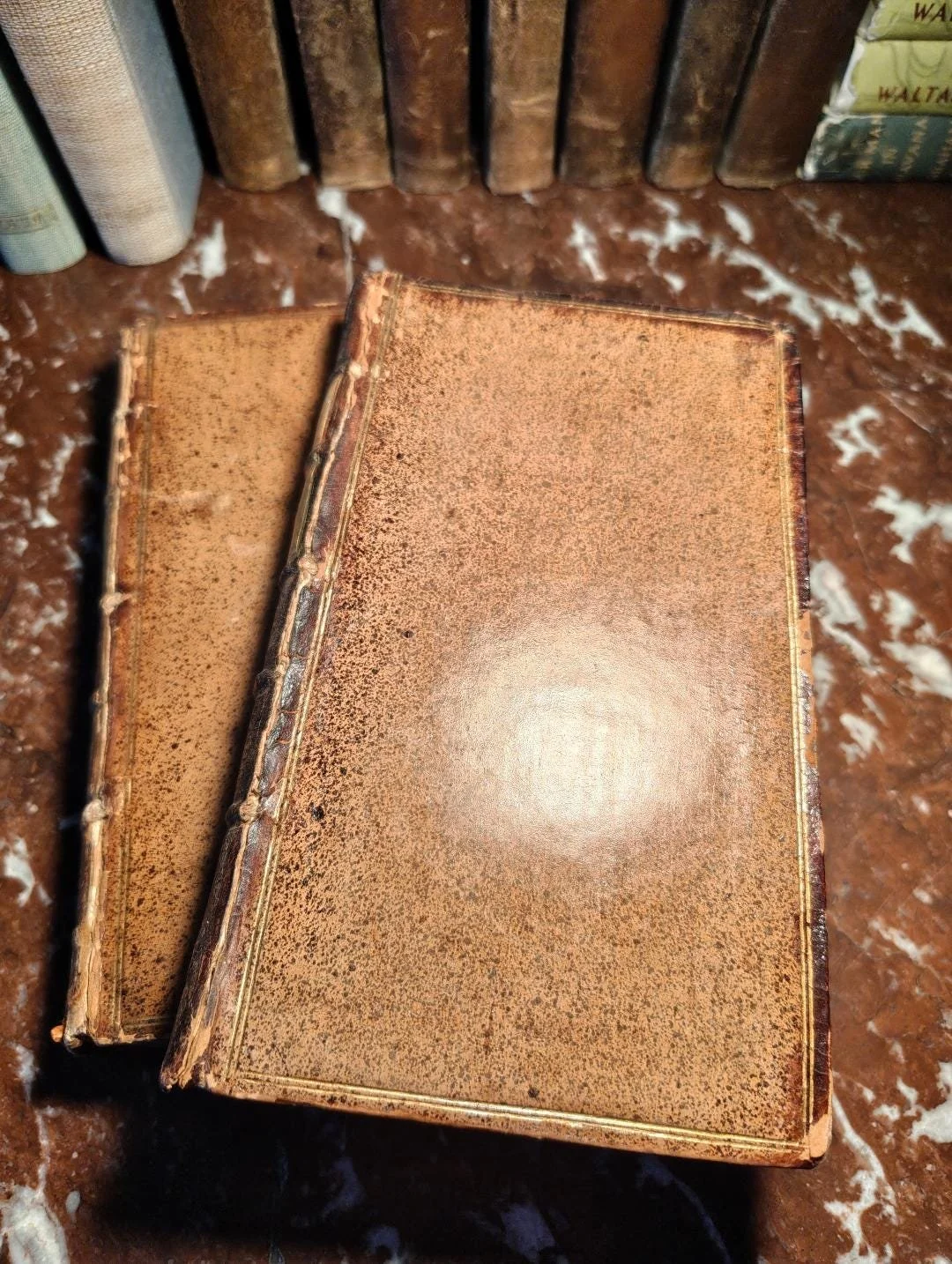 Image 7 of 9
Image 7 of 9

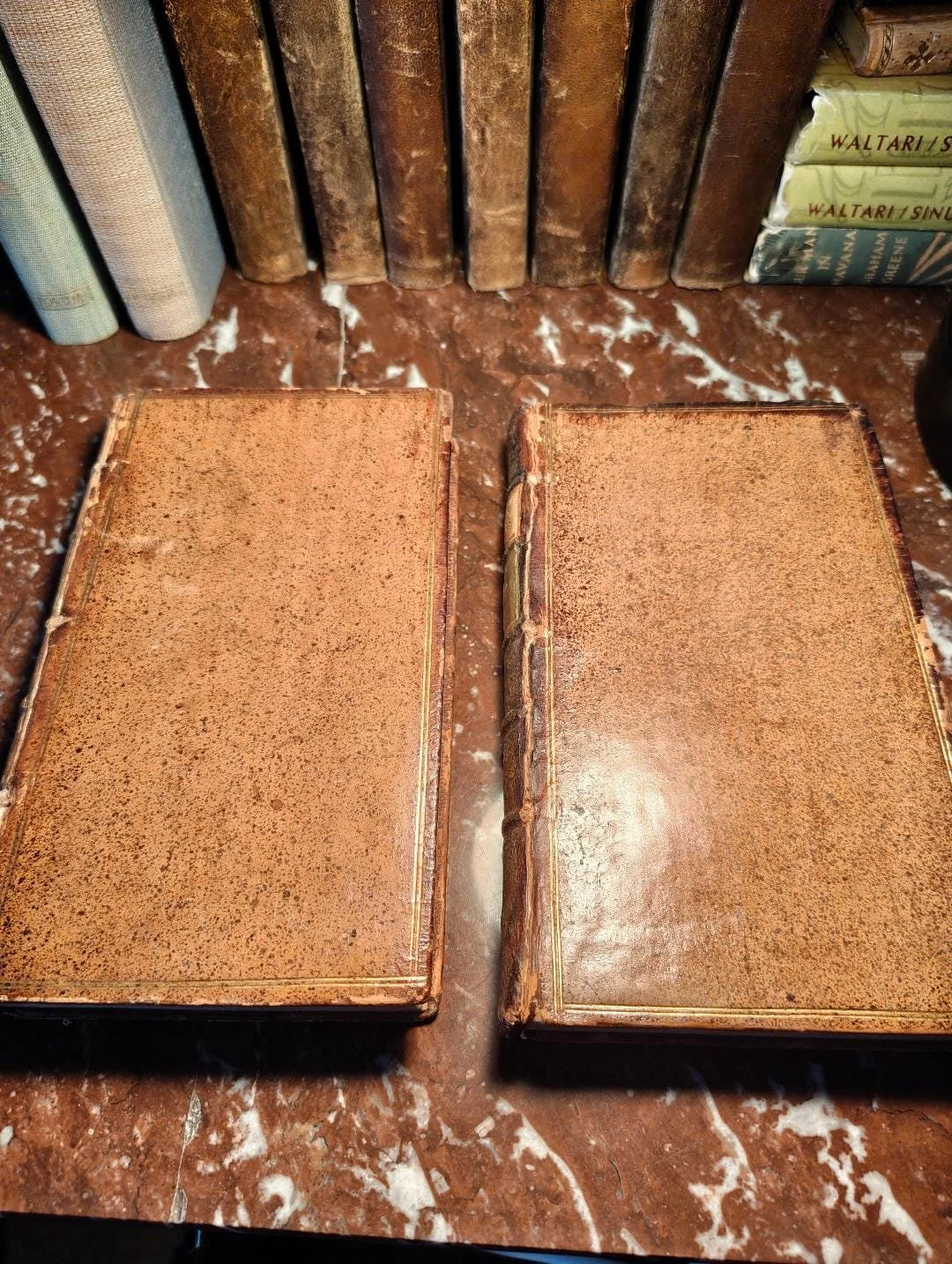 Image 8 of 9
Image 8 of 9

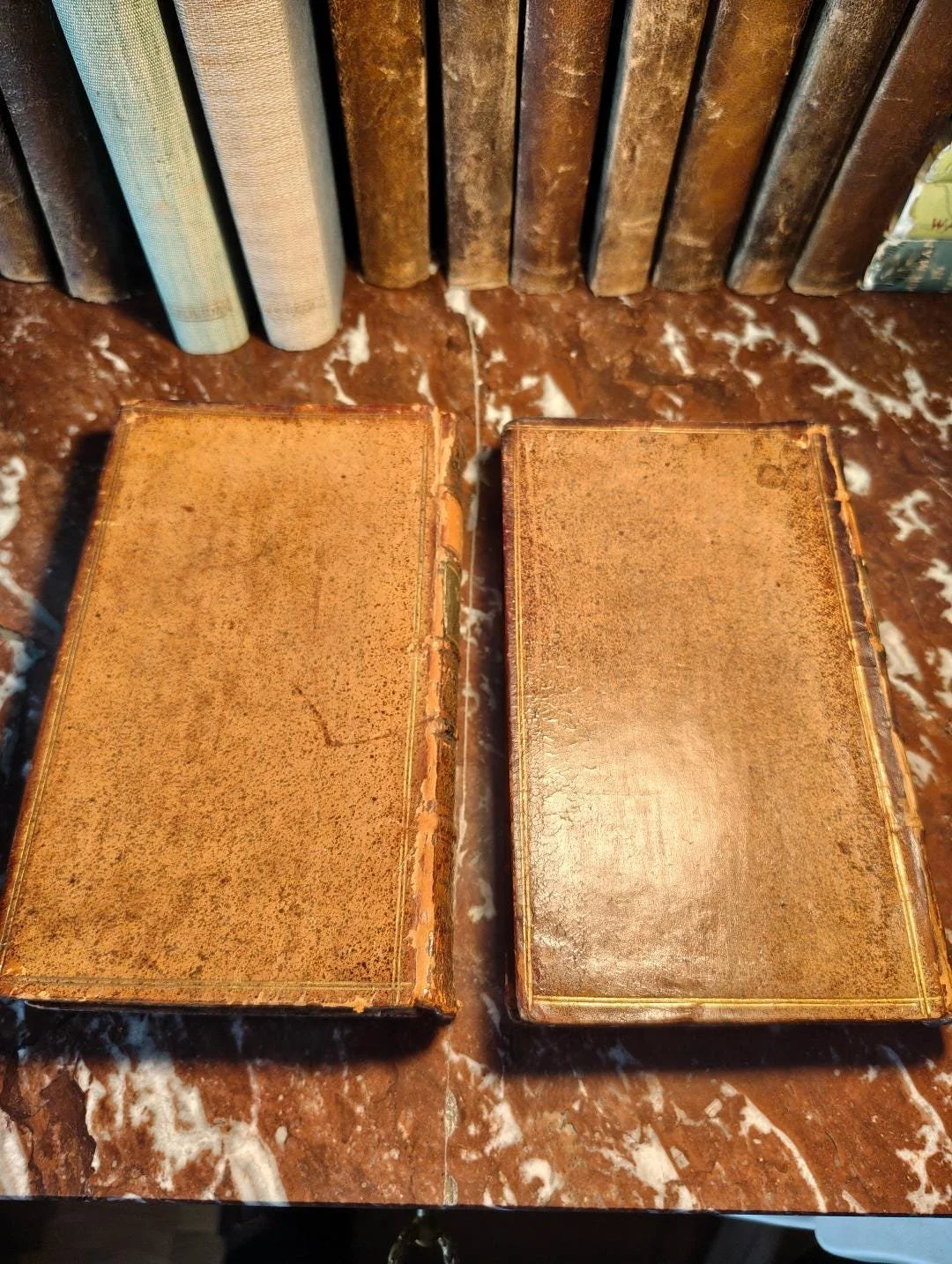 Image 9 of 9
Image 9 of 9










Persian Letters. Montesquieu
A landmark of Enlightenment satire in an early English edition
This 1762 London printing of Persian Letters presents one of the defining works of the Enlightenment in a complete two volume set, translated into English by John Floyd and issued as the Fourth Edition “with several new letters and notes.” Published by J. and R. Tonson, one of the most influential eighteenth century houses, the edition testifies to the sustained British interest in continental philosophy and political thought during the decades surrounding the Seven Years’ War.
First published in 1721 as Lettres persanes, Montesquieu’s work posed as a collection of observations written by two Persian travellers who examine European manners, religion, government, and social conventions with amused curiosity and growing disillusion. By shifting the viewpoint to outsiders, Montesquieu achieved a subtle yet penetrating satire of French absolutism, clerical authority, and the often fragile foundations of European society. The book travelled widely across the Republic of Letters and helped prepare the intellectual ground for later political reforms. Its reflections would echo through the writings of figures as varied as Diderot, Voltaire, and the framers of the American Constitution.
This set is preserved in its contemporary full calf bindings with gilt spine decoration and contrasting red and green spine labels. The leather shows the graceful wear of more than two centuries with rubbing to the boards and cracking along the hinges, yet both volumes remain structurally sound. The interiors display the expected toning and foxing of eighteenth century paper while remaining clean, legible, and complete.
As a cultural artefact the edition stands at the intersection of satire, political philosophy, and early modern book history. It illuminates the ways in which Enlightenment ideas circulated beyond France and into the English speaking world. For collectors of political thought, eighteenth century literature, or original leather bindings, this is a thoughtful and compelling example of a work that reshaped European criticism and helped define the intellectual climate of its age.
A landmark of Enlightenment satire in an early English edition
This 1762 London printing of Persian Letters presents one of the defining works of the Enlightenment in a complete two volume set, translated into English by John Floyd and issued as the Fourth Edition “with several new letters and notes.” Published by J. and R. Tonson, one of the most influential eighteenth century houses, the edition testifies to the sustained British interest in continental philosophy and political thought during the decades surrounding the Seven Years’ War.
First published in 1721 as Lettres persanes, Montesquieu’s work posed as a collection of observations written by two Persian travellers who examine European manners, religion, government, and social conventions with amused curiosity and growing disillusion. By shifting the viewpoint to outsiders, Montesquieu achieved a subtle yet penetrating satire of French absolutism, clerical authority, and the often fragile foundations of European society. The book travelled widely across the Republic of Letters and helped prepare the intellectual ground for later political reforms. Its reflections would echo through the writings of figures as varied as Diderot, Voltaire, and the framers of the American Constitution.
This set is preserved in its contemporary full calf bindings with gilt spine decoration and contrasting red and green spine labels. The leather shows the graceful wear of more than two centuries with rubbing to the boards and cracking along the hinges, yet both volumes remain structurally sound. The interiors display the expected toning and foxing of eighteenth century paper while remaining clean, legible, and complete.
As a cultural artefact the edition stands at the intersection of satire, political philosophy, and early modern book history. It illuminates the ways in which Enlightenment ideas circulated beyond France and into the English speaking world. For collectors of political thought, eighteenth century literature, or original leather bindings, this is a thoughtful and compelling example of a work that reshaped European criticism and helped define the intellectual climate of its age.

